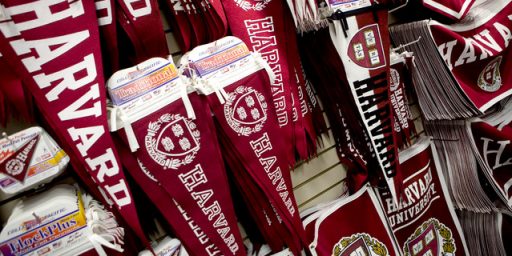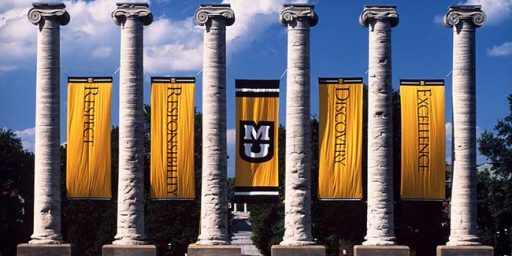Basic Economics For Lawyers…
…or one lawyer in particular. In responding to Glenn Reynolds post about the pay for lawyers, Ron Coleman responds with,
It’s the free market, Instapundit. Countries don’t pay lawyers or engineers, but their constituent elements do. And as they need them, and they put their money on the line to purchase their services. Lawyers must be getting paid what they are getting paid because that�s what the market values their services at, and the same with engineers.
In a word, wrong. The problem here is percisely what Glenn Reynolds noted today, “the market for lawyers not that free”. Coleman completely and totally skirts the issue of the ABA and the fact that to practice law one needs to pass the bar exam. No bar exam, one cannot practice law. That in effect restricts entry into the market and reduces supply and pushes up the prices. Ron responded with this,
Oh, pshaw, Glenn! Maybe the market for law professors isn’t free, but the market for lawyers?
Sorry, it is still wrong. There is less competition in the market for lawyers than there would be without the bar exam requirement. One could try to make the argument that the bar exam ensures that those who do practice law know what they are doing. I find this suspicious in that lawyers are not periodically retested to assure potential clients that a lawyer has stayed abreast of the latest events in his area of speciality. And even if the argument is true it does not negate the fact that the bar exam reduces competition which grants each practicing lawyer a certen amount of market power.
The bottom line is that things like licensing requirements and so forth restrict entry, make a market less “free” and raise prices. There is the possibility that such things will raise the welfare of the consumer, but that is either secondary or non-existent. Basically, it is a type of rent seeking. And rent seeking can be characterized as obtaining un-earned economic benefits via manipulation of the economic environment than by trade. And ironically, I bet if we looked, we’d find lawyers behind most instances of rent seeking.





There is also the problem that, in many cases, the person for whom the lawyer provide services is not the person who ends up paying his fee.
There is something to be said for the party who is ultimately determined to be at fault paying all the attorney fees. There are other advantages to having the person who retains the lawyer paying the lawyer’s fees. But we do not have a meaningful “loser pays” system in the U.S., unless it is the defendant who pays; and the upshot is that we get the worst of both systems.
There’s a point that’s being missed beyond the credentialing issue: the common law system itself is a subsidy to lawyers.
As a trial lawyer practicing since 1965, I would have welcomed a free market and still do. As a matter of fact, I have tried cases against non-lawyers or “self taught” lawyers a number of times. I have never lost such a case.
Steve,
You might want to rethink what you wrote above as practicing lawyers are re-tested every time they are in a court of law, by the judge. Any lawyer that is actually practicing the profession stays current by virtue of the practice itself.
There are few radical new developments in law. Instead it is based mostly upon old law and old precedent. Most changes to laws are minor and evolutionary not revolutionary. Sarbanes, Oxley for corporate lawyers would be one example of a revolutionary change, but I can’t think of any others.
The fact that the lawyers write all the laws makes the market less than free. I think someone above made mention of this, but it deserves a second mention.
Could we make the same credentialing complaint about medical doctors? I don’t think so. I believe we need and want certain professionals, lawyers included, to have a respected credentialing authority.
Besides, I thought there were too many lawyers.
The problem with Mr. Colemans argument is in his compairson between Lawyers and Engineers is, That Engineers engage their services into something constructive for society and Laywaer engage their services for themselves.
With the number of lawyers employed growing at about double the national rate it does not appear that the bar exam does much to restrict the number of lawyers.
The post is an excellent example of the limitations of “basic economics,” for reasons already well-stated above.
One could do lots of things to ensure that lawyers stay current, like annual testing. One could set no requirements at all and let the client beware. The present system is obviously a compromise, but that doesn’t make it worthless.
You might want to also look into the laws restricting what lawyers can do on advertising.
Imagine if Walmart could only tell you about dirty carpets and if you need someone to help you with dirty carpets, consider going to their store. But they couldn’t advertise the price of the vacuum cleaners. Compare the qualities of the cleaners., etc.
I was a jury foreman on a case that should have been summarily dismissed. It actually had been dismissed, but the state supreme court sent it back for a trial by jury because two facts needed to be decided by a jury, not assumed by the judge. First if someone can contract and fall sick with the flu in 24 hours. Second, if having the flu can render you permanently disabled. We had one extreme liberal who openly admitted that he hated “evil” insurance companies and was already to find against them, but even he couldn’t support this case. The jury uniformly thought that the plaintiff had committed perjury. But nothing was done to the plaintiff or the attorney.
I think one good legal reform would be to let juries in a trial act as a grand jury on perjury and as a ethical/competence review board for the bar. In addition to rendering their verdict, the jury should be able to forward an indictment for perjury or legal malpractice to the local district attorney. The winnowing process on trial attorneys and the perpetual plaintiff would likely be a good thing for our justice system.
Still wrong as usual, eh ken. The reason the above is wrong is that generally failing in front of a judge is not going to result in losing one’s license.
RJN,
The same complaint goes for doctors. If you want to make a “we test them so we know they are good” argument then re-test them every few years. Failure to do this and it very much becomes little more than a barrier to entry.
Boy, coming from somebody who usually has pretty decent empirical content in his comments this one is pretty bad. The question isn’t merely what is the growth rate, but also things like what is the demand. That is, noting a high growth rate does not negate the fact that it still provides a barrier to entry.
I didn’t say it was worthless, but the idea that it is solely to promote quality is suspect. There are numerous “compromises” here. There could be periodic re-testing where the period between tests is 1 year to several years. Given that the test is a once-in-a-life-time test it strikes me more of a barrier to entry than anything else.
And how often are the judges re-tested? The higher you go in the system, the more likely a judgeship is a lifetime appointment.
Spencer is right. There are over half a million lawyers in the U.S. There are so many lawyers, and it is really so easy to become a lawyer — compared to, say, a doctor — that the mere fact that lawyers have licenses is putting form before substance (something lawyers are famously guilty of). Licensure is a straw man. That is why although there is, technically, a “cartel,” it is a very weak cartel, springing leaks right and left. All sorts of tasks once reserved for lawyers can be and are performed by non-lawyers, both pro se and hired. There are lawyers available at virtually every budget point, and their licensing is besides the point — it is the expertise that certain lawyers possess that drive their prices up, not their licenses.